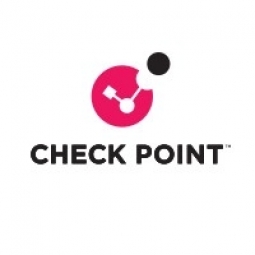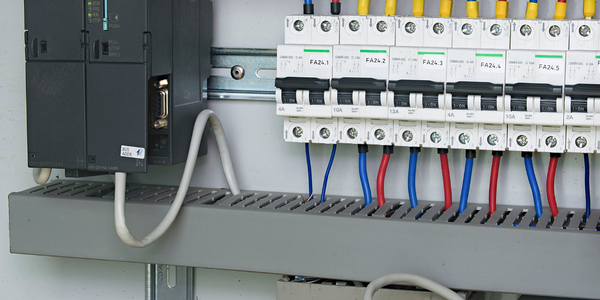Prokit’s Industries Co., Ltd. Enhances E-commerce Adoption and Network Security with Check Point Solutions

Technology Category
- Cybersecurity & Privacy - Network Security
- Networks & Connectivity - Gateways
Applicable Industries
- Electronics
- National Security & Defense
Applicable Functions
- Logistics & Transportation
- Maintenance
Use Cases
- Inventory Management
- Tamper Detection
Services
- Cybersecurity Services
About The Customer
Prokit’s Industries Co., Ltd. is a leading manufacturer of hand tools, power tools, soldering equipment, test instruments and accessories for electronics, industrial, telecommunication, and educational fields. Established in 1991, the company is headquartered in New Taipei City, Taiwan, and distributes to more than 90 countries worldwide. Prokit’s sales and distribution network covers five continents extensively, with branches and factories in China and Malaysia. The company was looking to increase e-commerce adoption by its business partners and customers, enable access to its business portals from multiple internet-enabled devices, and simplify network security management.
The Challenge
Prokit’s Industries Co., Ltd., a leading manufacturer of hand tools, power tools, soldering equipment, test instruments and accessories, was facing a significant challenge in increasing e-commerce adoption by its business partners and customers. The company needed to enable access to its internal and external business portals from multiple internet-enabled devices. This was crucial for the company's global operations, with distribution to more than 90 countries worldwide and a sales and distribution network covering five continents. Additionally, Prokit’s was looking to reduce costs and simplify network security management. The company required a highly secure solution to enable remote access to its distribution and business partner portals from multiple internet-enabled devices. It was also necessary to ensure robust security for a variety of managed and unmanaged PCs and mobile devices accessing the network, provide seamless remote access to distribution and business portals, and maximize efficiency through centralized network security management.
The Solution
Prokit’s turned to Check Point for a solution. The company implemented the Check Point UTM-1 576 security appliance running R75 with Mobile Access, IPS, URL Filtering, and Firewall Software Blades. This solution provided highly reliable, comprehensive protection for Prokit’s. The Mobile Access Software Blade delivered secure remote access, allowing partners, customers, and employees to securely access business portals and corporate resources using a variety of mobile devices and PCs. The solution integrated with Prokit’s Active Directory infrastructure, enabling the company to control access through the creation and use of identity-based policies. Prokit’s also deployed Check Point UTM-1 576 security appliances running multiple security Software Blades to provide strong integrated protection across multiple layers of its network. The Check Point Smart-1 5 appliance allowed Prokit’s to centrally manage all aspects of its Check Point deployment from a single user interface, improving visibility and control.
Operational Impact

Case Study missing?
Start adding your own!
Register with your work email and create a new case study profile for your business.
Related Case Studies.

Case Study
Remote Temperature Monitoring of Perishable Goods Saves Money
RMONI was facing temperature monitoring challenges in a cold chain business. A cold chain must be established and maintained to ensure goods have been properly refrigerated during every step of the process, making temperature monitoring a critical business function. Manual registration practice can be very costly, labor intensive and prone to mistakes.

Case Study
Predictive maintenance in Schneider Electric
Schneider Electric Le Vaudreuil factory in France is recognized by the World Economic Forum as one of the world’s top nine most advanced “lighthouse” sites, applying Fourth Industrial Revolution technologies at large scale. It was experiencing machine-health and unplanned downtime issues on a critical machine within their manufacturing process. They were looking for a solution that could easily leverage existing machine data feeds, be used by machine operators without requiring complex setup or extensive training, and with a fast return on investment.

Case Study
Cloud Solution for Energy Management Platform-Schneider Electric
Schneider Electric required a cloud solution for its energy management platform to manage high computational operations, which were essential for catering to client requirements. As the business involves storage and analysis of huge amounts of data, the company also needed a convenient and scalable storage solution to facilitate operations efficiently.

Case Study
Leveraging the IoT to Gain a Competitive Edge in International Competition
Many large manufacturers in and outside Japan are competing for larger market share in the same space, expecting a growing demand for projectors in the areas of entertainment, which requires glamor and strong visual performance as well as digital signage that can attract people’s attention. “It is becoming more and more difficult to differentiate ourselves with stand-alone hardware products,” says Kazuyuki Kitagawa, Director of Service & Support at Panasonic AVC Networks. “In order for Panasonic to grow market share and overall business, it is essential for us to develop solutions that deliver significant added value.” Panasonic believes projection failure and quality deterioration should never happen. This is what and has driven them to make their projectors IoT-enabled. More specifically, Panasonic has developed a system that collects data from projectors, visualizes detailed operational statuses, and predicts issues and address them before failure occurs. Their projectors are embedded with a variety of sensors that measure power supply, voltage, video input/ output signals, intake/exhaust air temperatures, cooling fan operations, and light bulb operating time. These sensors have been used to make the projector more intelligent, automatically suspending operation when the temperature rises excessively, and automatically switching light bulbs. Although this was a great first step, Panasonic projectors were still not equipped with any capability to send the data over a network.








